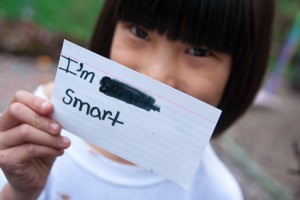“We have learned to be citizens of the world, members of the human community.”
I love this quote because it encapsulates the interconnectedness of humankind. Even if the pockets of war and civil unrest that exist today attest that perhaps we’re still getting the hang of this human community thing, we are nonetheless all connected in one way or another. And all the more so since the onset of the social media phenomenon.
When Franklin D Roosevelt uttered these words during his fourth inaugural address, little did he know that the concepts of “citizen” and “human community” would evolve over the course of the century, as the internet made the world a much smaller place and the social media phenomenon amplified the humble personal network beyond anything ever seen before. If we’re still learning how to be citizens of the world, we’re most certainly still learning how to be citizens of the internet, and educating kids in how to navigate social media as digital citizens is a particularly vital step in this journey.
“I don’t know if my account is public or not”
The recent Pew Research Center study reveals some fascinating insights into teenagers’ use of social media. While the majority of teens reported confidence in their ability to maintain privacy settings on social media platforms, other trends reveal that, in some cases, their confidence masks ignorance. In particular, the report highlights that Twitter use among teens has risen significantly; most of these are public accounts, and 12 % of teen Tweeters “don’t know” whether their account is public or not. On Facebook, a little over a third of older teens (aged 14 to 17) have “friends” in their network they’ve never met. In focus groups, many kids revealed that they were unaware that the information they post on sites such as Facebook is being used by advertisers. These facts are concerning; while kids might claim they know the score when it comes to being safe online they are hazy on the finer details of maintaining privacy.
Discussing digital citizenship in general and in the classroom is imperative, but social media plays such a prominent role in everyday internet usage that it deserves its own guidelines for proper conduct. Check out the tips below for addressing social media and digital identity and citizenship at home and in the classroom.
Digital Citizenship: Safeguard Kids’ Digital Identity
-
1. Set up guidelines for social media use at home
Many schools have a digital citizenship or social media use policy. However, responsible social media use in school needs to be upheld by similar standards at home. Drawing up a list of rights and responsibilities to be signed by both parent and child invites parents to actively support school policy at home.
-
2. Learn about privacy settings
Kids are not going to wade through the legalese of social media platforms’ terms of use pages of their own accord. We adults must inform ourselves of the details so that we can communicate them to kids in an accessible way. Check out Facebook’s Statement of Rights and Responsibilities here, and Twitter’s Terms of Use here.
-
3. Choose the right site for the right age
According to Facebook policy, kids must be at least 13 to sign up. However, there are a number of other social media sites designed for use by younger kids with parental guidance. Using these sites can help children develop digital citizenship awareness in a safe environment at a young age, so that as teens they’ll be empowered to independently navigate social media safely and responsibly. Check out a list of these sites here.
-
4. Have a balance between digital and real life
Some kids spend endless hours sculpting the perfect Facebook persona but forget to live in the moment. While responsible social media use can be a wonderful platform for teens to express their individuality and share their interests with their peers, too much time tweaking an online identity can create a disconnect between the real self and its digital counterpart.
Can parents and teachers ever be too cautious when it comes to social media? Click below to download your FREE printable digital citizenship posters:
Download My FREE Classroom Posters
By Deirdre Kilbride
P.S. Teachers use Fishtree to plan lessons, find standard-aligned teaching resources, create assessments and see students performance, all in one place! If you’re a teacher, use Fishtree to prepare for your class and understand how well each student is learning. What’s more, it’s safe, secure, collaborative and easy! Try the next generation learning platform or contact us for a demo.
Image credits: Shy Boy (Jiunn Kang Too) / CC BY 2.0
